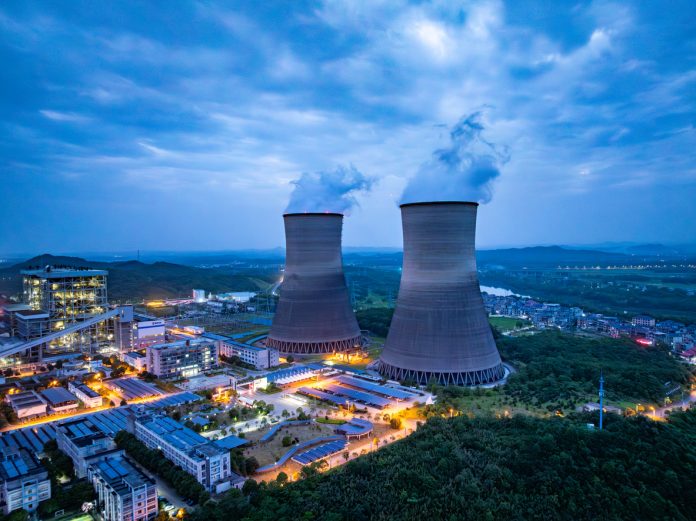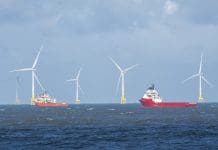Alena Mastantuono is a European Economic and Social Committee member and rapporteur for the EESC opinion on Radioactive waste management: a civil society perspective. Here, she explores the importance of securing Europe’s nuclear future through responsible waste management as a crucial element of the EU’s industrial leadership
The European Union (EU) has long held a position of global leadership in the nuclear sector, underpinned by deep-rooted commitments to technological sovereignty, industrial excellence, and rigorous safety standards. This leadership was not achieved by accident. It has arisen from bold choices that were made to master the full nuclear fuel cycle, support innovation-led start-ups, and build a workforce at the cutting edge of science and engineering. At the core of this leadership is an unyielding regulatory framework that places nuclear safety, security, and environmental protection above all.
The crucial issue of radioactive waste
Europe’s nuclear sector is not just a pillar of energy security and a driver of climate action; it is also a test case for public trust, which can only be maintained through transparency, environmental stewardship, and social responsibility. In 2023 alone, EU Member States generated approximately 40,000 cubic metres of radioactive waste and 1,000 tonnes of spent nuclear fuel as they used nuclear energy to meet around 620 TWh of electricity demand. Crucially, radioactive waste is not an issue exclusive to power plants: it also stems from medical, research, industrial and agricultural activities, and involves every Member State, regardless of their energy mix.
While radioactive waste remains a minor fraction of total hazardous waste, it poses unique long-term management challenges due to its radiotoxicity and longevity. A more coordinated approach can help meet the twin imperatives of public health and environmental protection.
A policy platform that sets the pace
The adoption of Council Directive 2011/70/Euratom, commonly referred to as the Radioactive Waste Directive, marked a significant milestone in the field of nuclear safety. It established minimum standards for the safe and responsible management of spent fuel and radioactive waste across all Member States. The directive requires each Member State to develop, implement, and regularly update a national waste management programme, which must include clear timelines, cost assessments, and oversight mechanisms.
Despite this progress, significant disparities persist: some countries boast advanced infrastructure, technical capabilities, and high levels of public engagement, while others lag behind. The European Economic and Social Committee (EESC) emphasises the importance of continuous monitoring, transparent reporting, and open communication with communities located near radioactive waste management (RWM) facilities.
Infrastructure and innovation: The next frontier
Europe faces a pivotal challenge: to reprocess the spent fuel or dispose of it. Reprocessing the waste will ensure that no burden is passed on to future generations. Moreover, integrating circular economy principles into RWM practices is no longer optional. By embracing reprocessing, recycling, and trailblazing technologies – such as transmutation – the EU can shrink both the long-term risk and the footprint of radioactive waste.
Where this option is not possible for various reasons, then long-term disposal solutions should be established, including deep geological repositories. But deep repositories should not be the only solution. Today, only a few Member States are breaking ground in this area, and broader EU cooperation is essential, particularly for small and medium-sized countries with limited waste inventories.
Shared or multinational repository solutions offer a viable path forward. By pooling resources and expertise, Member States cannot only improve safety and reduce costs, but can also enhance public trust. The EESC calls on the Member States to actively implement such collaborative approaches, rooted in safety protocols and democratic legitimacy. Open, informed public debates are necessary to chart a course that strikes a balance between technical viability and societal values.
Public engagement and civil society involvement: The bedrock of success
No nuclear future can succeed without meaningful public acceptance. This requires open, inclusive, and continuous dialogue at all stages – from strategic planning and site selection through to construction, operation, decommissioning, and waste management. Empowering local communities, particularly those near nuclear facilities, is crucial for societal acceptance.
To this end, EU and national funding mechanisms should support capacity-building for civil society organisations, enabling them to assess, critique and shape policy discussions independently. The EESC underscores the importance of allowing these groups to scrutinise – and improve – the effectiveness of participation and transparency practices in RWM.
With cutting edge nuclear technologies on the horizon, involving stakeholders early creates trust, promotes mutual understanding, identifies potential concerns early, and ensures more resilient outcomes.
Investing in R&D and education for the future
A cutting-edge RWM strategy is not just about technical infrastructure – it is about a thriving ecosystem for research and development, education, and skills training. The EESC advocates an interdisciplinary approach to R&D, integrating technical innovation with social sciences and public engagement.
Initiatives such as the European Joint Programme on Radioactive Waste Management (EURAD) and the Implementing Geological Disposal of Radioactive Waste Technology Platform (IGD-TP) set the gold standard, keeping civil society at the heart of innovation, transparency, and public assurance.
Nuclear energy: The path forward
Europe’s claim to industrial leadership in nuclear energy must be matched by an equally robust commitment to the safe, ethical, and forward-looking management of radioactive waste. Building public trust, securing environmental safety, and cementing a culture of long-term responsibility requires more than regulatory box-ticking: it demands a dynamic, collective push spanning government, industry, academia, and civil society.
Only through such an integrated and participatory approach can the EU deliver a truly sustainable nuclear future – one that benefits today’s citizens while safeguarding the well-being of future generations.











